Ministry of Statistics & Programme Implementation
Harnessing Data for Development: Symposium Underscores Transformative Role of NSS Surveys in Policy Making
Posted On:
09 OCT 2025 8:00PM by PIB Delhi
The National Statistics Office (NSO), Ministry of Statistics and Programme Implementation (MoSPI), Government of India, organised a National Symposium on “How NSS Surveys Have Influenced Public Policy” on 9th October 2025 at the Indian Institute of Management (IIM), Bengaluru. The event marked the 75 years of the National Sample Survey (NSS)—a legacy of statistical excellence that has shaped India’s evidence-based policy and planning landscape.
The Inaugural Session of the Symposium was graced by Dr. Saurabh Garg, IAS, Secretary, MoSPI, Dr. Ashok Dalwai, Chairman, Institute for Social and Economic Change (ISEC), Ms. Geeta Singh Rathore, Director General, National Sample Survey (NSS), Prof. Rishikesha T. Krishnan, Former Director, IIM Bengaluru, and Prof. Gopal Naik, Chairperson, Centre for Public Policy (CPP), IIM Bengaluru. The event witnessed participation of over 200 delegates, including policymakers, economists, academicians, statisticians, and media representatives from Central and State Governments, academia, and industry associations.
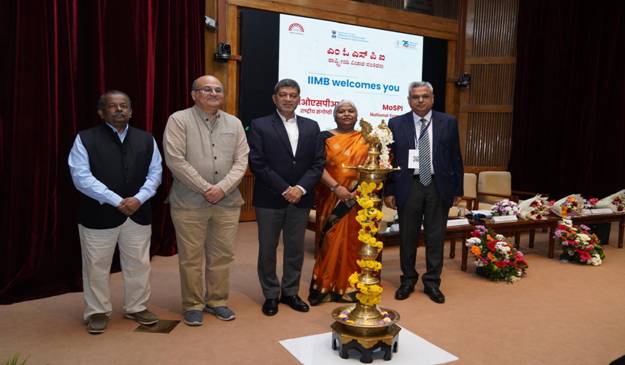
Prof. Rishikesha T. Krishnan, Former Director, IIM Bengaluru, welcomed the dignitaries and participants and highlighted the institution’s contribution to research and policy through its Centre for Public Policy (CPP). He underscored the importance of data-driven governance and appreciated the Ministry’s leadership in advancing statistical reforms and improving data quality through technological innovation.
Ms. Geeta Singh Rathore, DG, NSS, emphasized that “good data leads to good decisions,” transforming governance from guessing to knowing. She highlighted the efforts of the NSS field staff, adoption of new technologies including AI/ML tools, and the Ministry’s focus on enhancing data accessibility and collaboration with stakeholders.
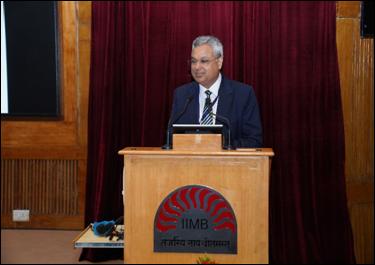
Dr. Saurabh Garg, Secretary, MoSPI, in his opening remarks, underscored that the 75-year legacy of NSS reflects India’s strong commitment to data-based policymaking. He reiterated the importance of stakeholder feedback in identifying data gaps and ensuring that surveys remain relevant to evolving needs. He outlined MoSPI’s roadmap to strengthen data systems by enhancing data quality and timeliness, increasing frequency of estimates such as monthly PLFS, expanding coverage through new surveys including Household Income and CAPEX, leveraging technology like CAPI for real-time validation, promoting research collaboration and open data dissemination through the e-Sankhyiki Portal, and exploring AI-based analytics for data-driven insights. He reiterated that data should be effectively utilized for informed decisions and urged all participants to contribute towards strengthening India’s statistical system.
Prof. Gopal Naik, Chairperson of the Centre for Public Policy (CPP), IIM Bengaluru, spoke about CPP’s engagement with evidence-based research and policymaking and the pivotal role of NSS data in informing India’s social and economic research. He pointed out that NSS surveys have generated enormous amounts of data that have proven invaluable to researchers and policymakers. He also highlighted how NSS data has been instrumental in studying issues such as poverty, employment, and consumption, thereby shaping government interventions and development programs. Prof. Naik stressed the importance of maintaining data quality and reliability and thanked MoSPI and NSS for their continued efforts in improving data collection and dissemination processes.
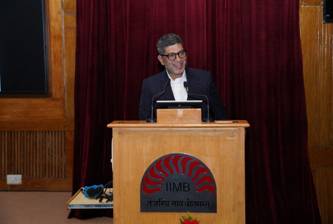
Delivering the keynote address, Dr. Ashok Dalwai, Chairman, ISEC, reflected on the NSS’s journey and its impact on poverty assessment, employment policy, and social development. He appreciated the methodological rigor of NSS while suggesting increased survey frequency, consistency, and improved sectoral coverage. Dr. Dalwai further emphasized that NSS has played a vital role in shaping India’s Five-Year Plans, framing welfare programmes, and assessing the socio-economic transition of households over decades. He highlighted the growing need to synchronize NSS findings with administrative and Big Data sources to ensure real-time policy relevance. He concluded by noting that strengthening survey comparability and methodological continuity would further elevate the global standing of India’s statistical system.
A technical session followed, led by Shri Salil Kumar Mukhopadhyay, Additional Director General, NSO, highlighting the evolution of NSS and technological advancements that transformed survey processes, including digital platforms for TUS, ASUSE, and NHTS.
The symposium featured three panel discussions, each focusing on a vital dimension of the NSS’s role in shaping India’s data ecosystem and public policy:
- NSS Data for Public Policy and Public Use – explored accessibility and public use of NSS data, moderated by Prof. Arnab Mukherjee (IIM Bangalore), with contributions from experts such as, Shri Hari Vetharenian (Development Data Lab), Prof. Amit Basole (Azim Premji University) and Ms. Rukmini S (Data for India). The session highlighted the importance of open data, transparency, and ethical use of granular datasets in public decision-making. Panelists underscored the growing role of platforms like SHRUG and e-Sankhyiki in democratizing access to NSS data and empowering evidence-based local governance.
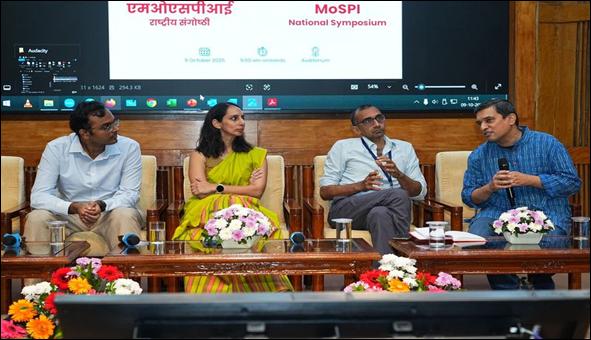
- NSS Data for Research –Highlights and Challenges – moderated by Prof. Aditya Srivastav (IIMB), with participation from ADGs of NSS, discussing data usability, panel datasets, and data access mechanisms. The session emphasized the need for deeper documentation, improved metadata, and training opportunities for researchers and students using NSS data.
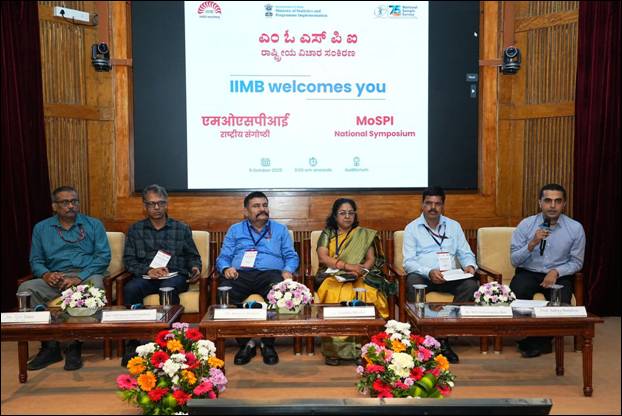
Panelists also discussed innovations such as integrating DIGIPIN for longitudinal tracking and enhancing collaboration between MoSPI and academic institutions to support robust empirical research.
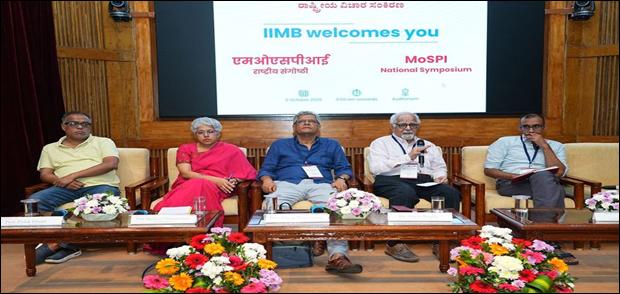
- Future Relevance of Unit-Level Data – featured eminent experts including Prof. Pulak Ghosh (IIMB), Prof. Madhura Swaminathan (ISI Bengaluru), Prof. Bharat Ramaswami (Ashoka University), and Dr. Surjit Bhalla (Former Member, EAC-PM), moderated by Prof. Amit Basole. The panel emphasized the growing importance of granular, gender-disaggregated, and integrated data sources—combining survey, administrative, and satellite data—to strengthen evidence-based policymaking and enhance local-level estimates.
The National Symposium concluded with an interactive session between data users and producers, encouraging a constructive dialogue on strengthening the country’s statistical architecture. The deliberations reaffirmed MoSPI’s commitment to advancing the use of official statistics for evidence-based policymaking, promoting technological innovation in survey operations, and deepening engagement with academic and research institutions. Marking 75 years of NSS, the event celebrated its enduring legacy and envisioned its continued contribution to building a Viksit Bharat @2047.
****
Samrat/Allen
(Release ID: 2177023)
Visitor Counter : 653